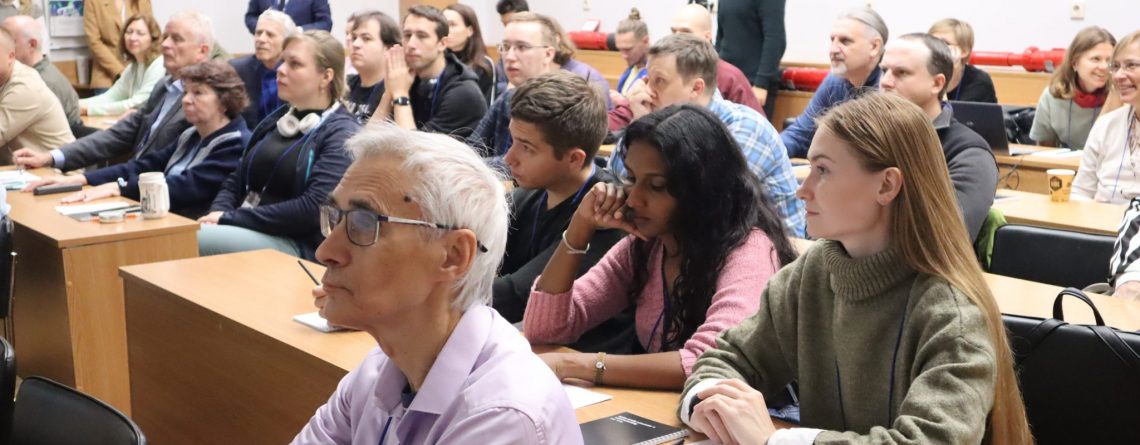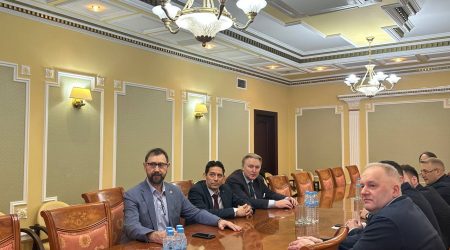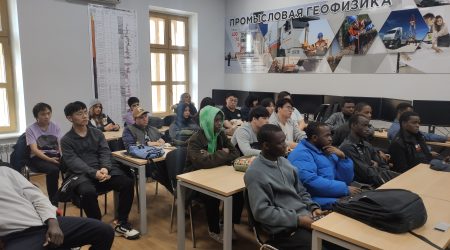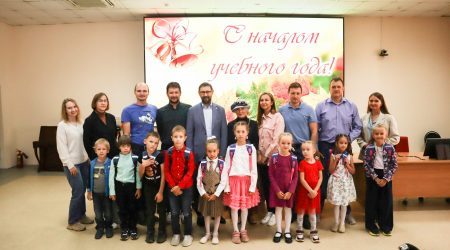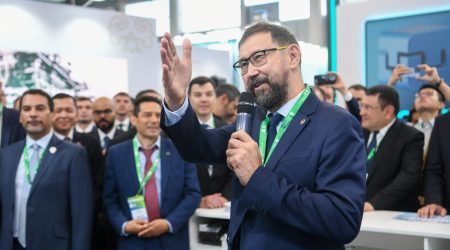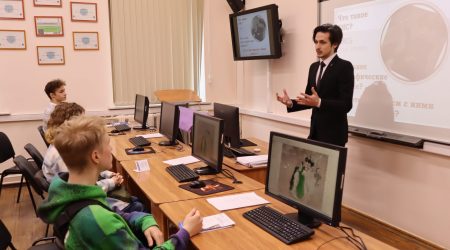Paleomagnetism and Rock Magnetism conference held at Institute
The opening took place on 2 October.
The event is devoted to the study of the modern geomagnetic field, as well as the study of the geomagnetic field in the historical and geological past, and the application of magnetism and rock paleomagnetism in various fields of science.
“Each year the workshop is attended by 70 to 160 participants from more than 35 organizations, including foreign ones. The existence of such a workshop allows the small “magnetic and paleomagnetic community” of Russia to familiarize itself annually with global trends. This serves to attract young people to the industry, as well as to strengthen contacts and intra-Russian mobility. More than 350 articles by Russian scientists in this field appear annually in the Scopus database. Given that the total number of Russian specialists working in this field is significantly less than this number, we can say that their productivity is quite high,” says Dilyara Kuzina, Senior Research Associate of the Laboratory of Paleoclimatology, Paleoecology and Paleomagnetism.
The forum was opened by Vice-Rector for Earth Sciences Danis Nurgaliev, who spoke about KFU and the Institute of Geology and Petroleum Technologies, including current research of paleomagnetism. The Vice-Rector himself is an expert in this field and has joined multiple expeditions on the matter, including ones to Atacama Desert (2019) and the Antarctic (2021).
C0-chairman of the conference’s scientific committee, Head of the Laboratory of Historical Geomagnetism of the Institute of Earth Physics (Russian Academy of Sciences) Valery Shcherbakov also addressed the participants, “I have been researching paleomagnetism for about 50 years. This year I brought a review paper to the conference on how reliable our paleomagnetic data are. Since we cannot verify them experimentally, the question of reliability becomes primary. The work was done jointly with a French scientist, because our research is unthinkable without international cooperation. The Earth is one, especially when it comes to science.
The conference will close on 7 October and includes a sightseeing trip to Bolgar, an ancient kingdom capital and UNESCO World Heritage site.

